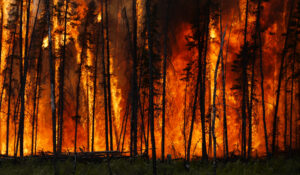Earth’s average global temperature has soared 1.3 degrees Celsius above the pre-industrial norm, marking the past 12 months as the hottest period ever documented, according to a report from Climate Central. The report, validated through peer review, attributes this unprecedented warming from November 2022 to October 2023 to human activities, particularly the combustion of fossil fuels like gasoline, coal, and natural gas, which release planet-warming gases such as carbon dioxide.
The severity of the situation is underscored by the fact that 90% of the global population, totaling 7.3 billion people, endured at least 10 days of high temperatures, intensified threefold by climate change. Andrew Pershing, a climate scientist at Climate Central, emphasizes the widespread impact, stating that no one is exempt from experiencing unusual climate-driven heat throughout the year.
The report further reveals that the average global temperature rise of 1.3 degrees Celsius is perilously close to the 1.5-degree limit set by the Paris Agreement. The repercussions are evident, with 1.9 billion people, or one in four humans, suffering from dangerous heat waves.
Climate scientist Jason Smerdon from Columbia University stresses that the escalating temperatures are not surprising, likening it to being on an escalator and realizing you’re going up—it’s a predicted outcome. The consequences of this warming are evident globally:
1. Storm Daniel in Africa became the deadliest on record, causing destructive rainfall and an estimated death toll between 4,000 and 11,000.
2. India experienced elevated temperatures for 30 days, affecting 86% of its population, with climate change making such events three times more likely.
3. Brazil’s Amazon region faced drought, leading to historic lows in river levels and severe shortages of food and fresh water.
4. The US witnessed at least 383 deaths from extreme weather events, with 93 deaths linked to the Maui wildfire event, the deadliest US fire of the century.
5. In Canada, one in every 200 people evacuated due to wildfires, exacerbated by prolonged heat, with smoke spreading across North America.
6. Jamaica endured high temperatures four times more likely due to climate change over the past year, showcasing the profound impact of climate change.
Kristie Ebi, a professor at the University of Washington, emphasizes the need for adaptation, mitigation, and better preparation for varying impacts across different regions. While oceans have absorbed the majority of excess heat, Kim Cobb, a climate scientist at Brown University, warns that they are reaching their limit, serving as the planet’s thermostat with profound implications for the economy, food sources, and coastal infrastructure.


